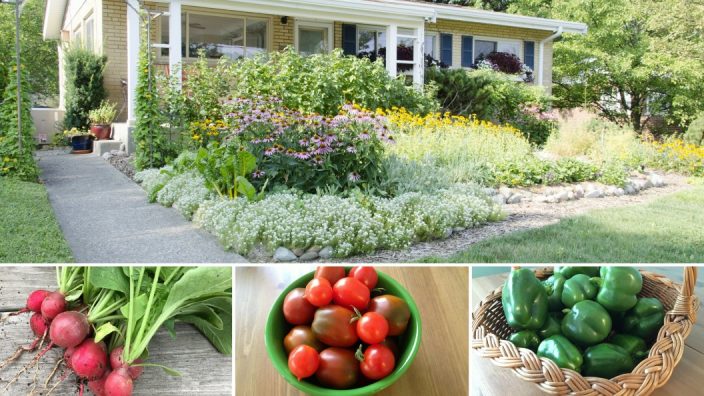Farmer’s Guide to Trucking Regulations available to Ohio Farm Bureau members
The guide includes a farm driver checklist, overview of state and federal regulations and exemptions, CDL qualifications and more.
Read More
When Amy Stross decided to grow her own food, the Hamilton County Farm Bureau member leased space from a friend who owned a multiacre lot.
Stross had seen the rows and rows of kale, kohlrabi and tomatoes growing at the farm where she worked as part of her Community Supported Agriculture program and believed she couldn’t replicate that on her tenth-of- an-acre lot in the burbs.
But when it came time to harvest vegetables, Stross felt differently. “In the case of yield, I was totally wrong. I could have grown the same amount at home,” she said.
She realized that with careful planning she could produce a wide variety of food on her own lot – especially if she used her front and back yards and the strip of land between the sidewalk and the street. “My biggest barrier was my misconception that I needed a lot of space,” she said. “It turns out, it wasn’t an issue.”
 She focused on creating an edible landscape for her yard, planting black raspberry bushes under her windows, using cayenne pepper plants in her borders and lining her front porch with currant bushes. As she became more experienced, she paid careful attention to how water flowed through her yard and which areas received the most sun in order to create the best growing conditions. In a nod to creating something that was attractive as well as productive, she planted interesting color combinations. She paired yellow chard with white sweet alyssum and collard greens with purple-flowering chives.
She focused on creating an edible landscape for her yard, planting black raspberry bushes under her windows, using cayenne pepper plants in her borders and lining her front porch with currant bushes. As she became more experienced, she paid careful attention to how water flowed through her yard and which areas received the most sun in order to create the best growing conditions. In a nod to creating something that was attractive as well as productive, she planted interesting color combinations. She paired yellow chard with white sweet alyssum and collard greens with purple-flowering chives.
Ultimately, she grew enough food on her property to incorporate something from the garden in 50 percent of her meals. “The idea of being a suburban micro farmer wasn’t my original goal,” she said. “It wasn’t something I set out to do. I just fell in love with farming.”
Stross began sharing her ideas and successes on her website and found that there were many other suburbanites hungry for the chance to grow their own food. She recently published a book, The Suburban Micro-Farm, designed to help would-be growers get started.
Her advice might seem unexpected. “Start small,” she said.
It’s easy to become overwhelmed by gardening tasks so it’s best to begin with something that’s manageable, she explained. You don’t want tending your food to become a burden, she said. It should be something you look forward to.
If you have small plot, you can follow another bit of Stross’ sage advice: Spend just 15 minutes a day in the garden.
If your garden plot is small and well-organized, it’s possible to keep it maintained this way, she said. Her book offers calendars and schedules to help gardeners best use their work time. She even encourages readers to bring their coffee or favorite adult beverage into the garden to make the tasks more enjoyable.
If you’ve never grown food in your yard, even a small amount will be a welcome change, she said. “When you’re starting out, there’s nowhere to go but up.”
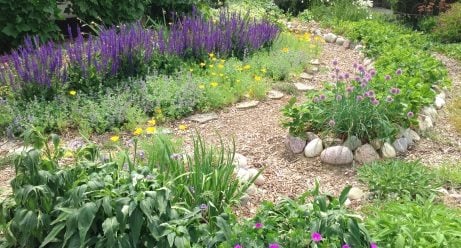 The rain garden, foreground, is planted with echinacea (purple cone flower), blue flag iris and wild geranium. The perimeter includes food-producing crops like sage. Strong-scented herbs in the strawberry beds, such as chives, serve as pest repellents.
The rain garden, foreground, is planted with echinacea (purple cone flower), blue flag iris and wild geranium. The perimeter includes food-producing crops like sage. Strong-scented herbs in the strawberry beds, such as chives, serve as pest repellents.
Tips for Growing Edibles
Start small: A carefully planned small space will offer a good yield without overwhelming you with work.
Take stock of your space: Study your yard to determine how much sun, shade and water the different areas get in order to plant just the right fruits or vegetables.
Plant what you love: This will make gardening even more appealing to you and create less waste.
Grow perennials: Perennials are those plants that come back year after year, producing delicious food without much work on your part. Some examples are asparagus, fruit and nut trees, berry bushes, strawberries and herbs. They are a smart choice for the low maintenance garden.
Don’t give in to the ‘brown thumb’ theory: The term “brown thumb” implies that you were either born with the innate ability to grow things (“green thumb”), or you weren’t. But don’t call it quits if you aren’t successful. The key to becoming a successful gardener is simply a matter of practicing. You wouldn’t expect to be able to play the guitar after one lesson, would you? Become a detective and observe what happened. Did your cucumbers catch a disease or pest? What were the symptoms? What could you try next time? Practice makes perfect.


The guide includes a farm driver checklist, overview of state and federal regulations and exemptions, CDL qualifications and more.
Read More


ODA will enroll 500,000 acres into the program for a two-week sign-up period, beginning April 22, 2024, through May 6, 2024. Contact local SWCD offices to apply.
Read More

Katie Share of Columbus has been named ExploreAg and Youth Development Specialist for Ohio Farm Bureau.
Read More

Mary Klopfenstein of Delphos has been named Young Ag Professional and Ag Literacy Program Specialist for Ohio Farm Bureau.
Read More

The plan has been updated to give sole proprietors access to more rate stability and a smart solution that offers potential savings on health care.
Read More

The American Farm Bureau Federation, in partnership with Farm Credit, is seeking entrepreneurs to apply online by June 15 for the 2025 Farm Bureau Ag Innovation Challenge.
Read More

Adele Flynn of Wellington has been elected treasurer of the Ohio Farm Bureau Federation and now holds the third highest elected office in Ohio’s largest and most influential farm organization.
Read More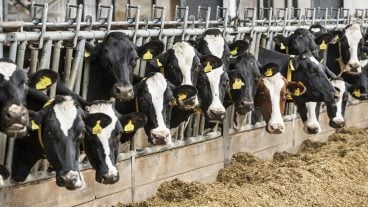
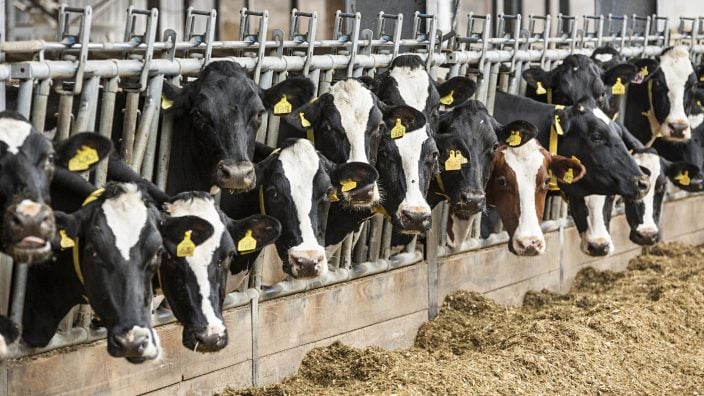
Producers are urged to work with their veterinarian to practice enhanced biosecurity measures and review and limit cattle movements within production systems.
Read More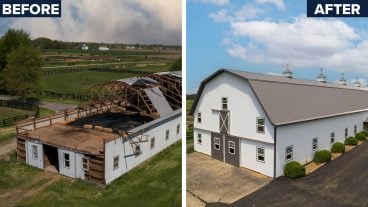
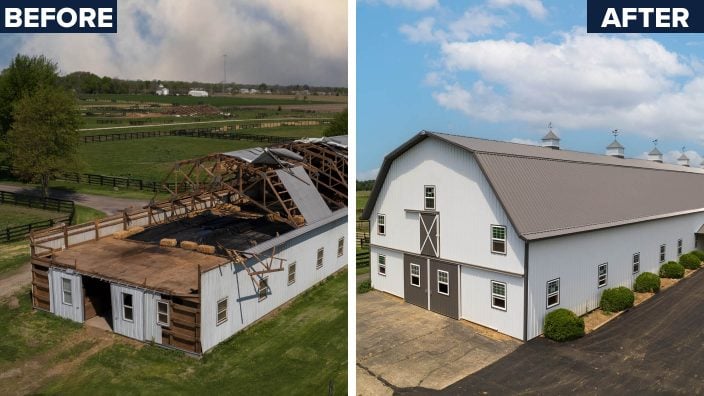
The changing seasons bring with them the need to thoroughly inspect pole barns for any damages that may have occurred during the winter months.
Read More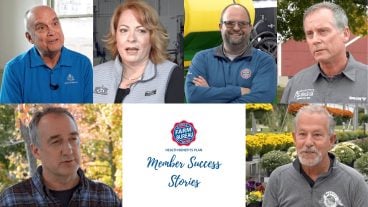
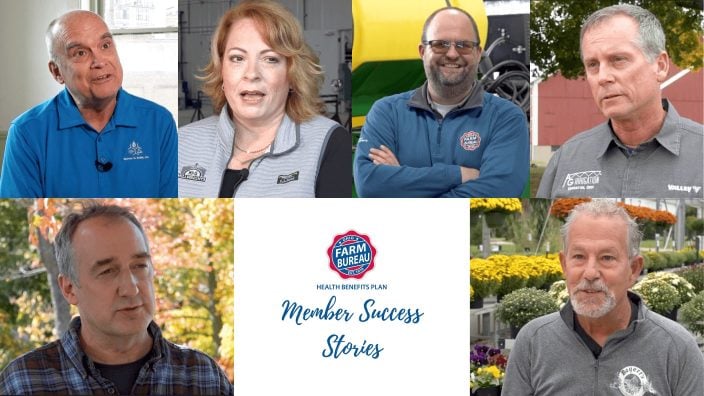
Hundreds of Ohio businesses and sole proprietors are raving about Ohio Farm Bureau’s Health Benefits plan with lower, predictable costs and easy enrollment and administration options.
Read More